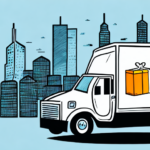Top 10 E-Commerce Platforms for Personalized Gift Shopping
Personalized gift shopping is rapidly evolving, becoming a cornerstone of the e-commerce landscape. Shoppers are increasingly seeking unique gifts that resonate with the recipient's personality and style, transforming the traditional gift-buying experience into a more meaningful and memorable process. This surge in demand has led numerous e-commerce platforms to enhance their offerings with personalized gift options. However, with a plethora of choices available, selecting the right platform can be overwhelming. This guide explores the key factors to consider when choosing an e-commerce platform for personalized gift shopping and provides a comprehensive comparison of the top 10 platforms in the market.
Why Personalized Gift Shopping is the Future of E-Commerce
The trend towards personalized gift shopping is driven by consumers' desire for unique and meaningful products. Personalized gifts often hold greater sentimental value, fostering a deeper emotional connection between the giver and the recipient. According to a Statista report, the global personalized products market is expected to reach approximately $36 billion by 2027, reflecting a compound annual growth rate (CAGR) of 9.6% from 2020. This growth underscores the increasing consumer preference for customized products.
Furthermore, offering personalized gift options provides businesses with a competitive edge. It differentiates them from competitors, enhances customer loyalty, and encourages repeat business. Personalized products also tend to have higher profit margins due to their unique nature and the added value perceived by customers.
From an environmental perspective, personalized gifts can contribute to sustainability. Items that are tailored to individual preferences are more likely to be cherished and retained, reducing waste and promoting a more sustainable consumption model. Additionally, many platforms now offer eco-friendly personalized options, such as reusable containers and sustainably sourced materials, aligning with the growing consumer emphasis on environmental responsibility.
Factors to Consider When Choosing an E-Commerce Platform for Personalized Gift Shopping
Selecting the right e-commerce platform for personalized gift shopping involves evaluating several critical factors:
- Cost and Fees: Assess the pricing structure, including monthly fees, transaction fees, and any additional costs for premium features.
- Customization Options: Ensure the platform offers a wide range of customizable products, designs, and templates to meet diverse customer needs.
- User Interface and Ease of Use: A user-friendly interface facilitates smooth navigation, product customization, and store management.
- Security Features: Robust security measures, including secure payment gateways and SSL certificates, are essential to protect customer data.
- Customer Support: Reliable and responsive customer support can help resolve issues promptly, ensuring a seamless shopping experience.
- Integration Capabilities: Compatibility with other tools and services, such as payment gateways, shipping providers, and marketing software, can streamline operations.
Additionally, consider the scalability of the platform to accommodate business growth and the availability of analytics tools to track performance and customer behavior.
Comparison of Top 10 E-Commerce Platforms for Personalized Gift Shopping
Below is a comprehensive comparison of the top 10 e-commerce platforms ideal for personalized gift shopping:
- Shopify: Known for its user-friendly interface and extensive app store, Shopify offers various customization tools and integrations, making it a favorite among personalized gift retailers.
- WooCommerce: A highly customizable platform built on WordPress, WooCommerce is ideal for those with coding experience who seek extensive control over their online store.
- BigCommerce: Offers seamless integration with popular payment gateways like PayPal and Stripe, along with robust SEO features to enhance online visibility.
- Magento: Renowned for its robust shipping and inventory management capabilities, Magento is suitable for larger businesses with complex needs.
- Squarespace: Provides elegant templates and design flexibility, making it perfect for businesses that prioritize aesthetics in their personalized gift offerings.
- Wix: Offers drag-and-drop functionality and a variety of apps, allowing for easy customization without the need for advanced technical skills.
- PrestaShop: An open-source platform that offers extensive customization options and a strong community of developers, ideal for tech-savvy entrepreneurs.
- Volusion: Features built-in marketing tools and analytics, assisting businesses in effectively promoting their personalized gift products.
- 3dcart: Known for its comprehensive feature set, including built-in SEO and marketing tools, 3dcart supports businesses looking to scale their personalized gift operations.
- Ecwid: A versatile platform that allows for easy integration with existing websites and social media channels, facilitating broader reach for personalized gift products.
Pros and Cons of Each E-Commerce Platform for Personalized Gift Shopping
Understanding the strengths and limitations of each platform is crucial for making an informed decision:
- Shopify:
- Pros: User-friendly, extensive app marketplace, excellent customer support.
- Cons: Transaction fees unless using Shopify Payments, limited customization without apps.
- WooCommerce:
- Pros: Highly customizable, large community, free core plugin.
- Cons: Requires WordPress knowledge, additional costs for premium extensions.
- BigCommerce:
- Pros: No transaction fees, robust SEO features, scalable for growth.
- Cons: Annual sales thresholds may require plan upgrades, design customization can be complex.
- Magento:
- Pros: Highly scalable, extensive customization, strong SEO capabilities.
- Cons: Requires technical expertise, higher cost for enterprise versions.
- Squarespace:
- Pros: Beautiful design templates, all-in-one platform, easy to use.
- Cons: Limited third-party integrations, less flexible for large inventories.
- Wix:
- Pros: Intuitive drag-and-drop builder, affordable pricing, versatile design options.
- Cons: Limited scalability, less robust e-commerce features compared to others.
- PrestaShop:
- Pros: Open-source flexibility, extensive customization, strong community support.
- Cons: Requires technical knowledge, potential additional costs for modules.
- Volusion:
- Pros: Built-in marketing tools, easy product management, no transaction fees.
- Cons: Limited themes, less flexible design options.
- 3dcart:
- Pros: Comprehensive feature set, strong SEO tools, multiple payment integrations.
- Cons: Steeper learning curve, design flexibility is limited.
- Ecwid:
- Pros: Easy integration with existing sites, multiple sales channels, free plan available.
- Cons: Limited advanced features, transaction fees on lower plans.
How to Create and Design Personalized Gifts on Different E-Commerce Platforms
Each e-commerce platform offers unique tools and features for creating and designing personalized gifts:
- Shopify: Utilize apps like Shopify App Store to add customization options such as product personalizers and custom design tools.
- WooCommerce: Implement plugins like WooCommerce Product Add-Ons to enable product customization.
- BigCommerce: Use integrations like Zakeke for real-time product customization.
- Magento: Leverage extensions such as Magento 2 Product Custom Options for advanced personalization features.
- Squarespace: Incorporate custom code blocks and third-party integrations to offer personalized design elements.
- Wix: Utilize the Wix Editor to add custom fields and integration with apps like Wix Forms for personalization.
- PrestaShop: Use modules like Product Personalization to allow customers to customize products.
- Volusion: Enable custom product options through the platform’s built-in tools or third-party integrations.
- 3dcart: Implement the Product Customization Feature for personalized gift options.
- Ecwid: Use the Ecwid App Market to add customization capabilities.
When designing personalized gifts, it's essential to ensure that the customization process is intuitive and user-friendly. Providing real-time previews and easy-to-use design tools can significantly enhance the customer experience and increase conversion rates.
Tips for Finding Unique and Creative Personalized Gift Ideas on E-Commerce Platforms
To discover unique and creative personalized gift ideas on e-commerce platforms, consider the following strategies:
- Leverage Search and Recommendation Features: Use the platform’s search functionality to explore gifts tailored to specific interests, preferences, and occasions.
- Explore Best-Selling Products: Review the platform’s best-selling items to identify popular personalized gifts that resonate with a broad audience.
- Read Customer Reviews: Analyze customer feedback to understand what makes certain personalized gifts stand out and gather ideas for new products.
- Browse Curated Collections and Gift Guides: Many platforms offer curated collections or themed gift guides created by experts, providing inspiration for unique personalized gifts.
- Collaborate with Sellers and Vendors: Reach out to sellers for exclusive customization options or to request recommendations based on specific needs and budgets.
Additionally, staying updated with current trends and seasonal demands can help in curating personalized gift offerings that are timely and relevant.
Customer Reviews and Ratings of Each E-Commerce Platform for Personalized Gift Shopping
Customer reviews and ratings play a pivotal role in selecting the right e-commerce platform. They offer insights into the real-world experiences of other users, highlighting the strengths and potential challenges of each platform:
- Shopify: Praised for its ease of use and extensive app ecosystem, though some users cite high costs for premium apps.
- WooCommerce: Appreciated for its flexibility and customization options, with some users noting the need for technical expertise.
- BigCommerce: Commended for its robust features and scalability, while a few users mention a steeper learning curve.
- Magento: Highly rated for its powerful capabilities and scalability, but often criticized for its complexity and higher costs.
- Squarespace: Valued for its stunning designs and user-friendly interface, though limited e-commerce features are a drawback for some.
- Wix: Loved for its intuitive drag-and-drop builder and affordability, with some users pointing out limitations in advanced e-commerce functionalities.
- PrestaShop: Favored for its open-source nature and customization, but can be challenging for non-technical users.
- Volusion: Appreciated for its built-in marketing tools, although some users report slower customer support responses.
- 3dcart: Recognized for its comprehensive feature set, with occasional feedback on the complexity of certain tools.
- Ecwid: Enjoyed for its versatility and ease of integration, while some users desire more advanced customization options.
It's advisable to read reviews on multiple platforms such as Trustpilot, G2, and Capterra to gather diverse perspectives before making a decision.
Best Practices for Marketing and Promoting Your Personalized Gift Shop on E-Commerce Platforms
Effective marketing and promotion are essential for driving traffic and sales to your personalized gift shop. Here are some best practices to consider:
- Establish a Strong Social Media Presence: Utilize platforms like Instagram, Pinterest, and Facebook to showcase your personalized gifts and engage with your audience.
- Optimize SEO: Implement on-page and off-page SEO strategies to improve your website’s visibility on search engines. Use relevant keywords, meta descriptions, and alt tags.
- Leverage Email Marketing: Build an email list and send targeted campaigns featuring new products, special offers, and personalized gift ideas.
- Run Promotions and Discounts: Offer limited-time discounts, bundle deals, and free shipping to incentivize purchases.
- Ensure Mobile-Friendliness: Optimize your website for mobile devices to provide a seamless shopping experience for mobile users.
- Collaborate with Influencers and Bloggers: Partner with influencers and bloggers in your niche to increase brand awareness and reach a broader audience.
Additionally, consider using paid advertising options such as Google Ads and social media ads to target specific demographics and drive traffic to your store.
How to Personalize the Checkout Experience to Increase Conversion Rates on E-Commerce Platforms
Personalizing the checkout experience can significantly enhance customer satisfaction and boost conversion rates. Here are some strategies to consider:
- Offer Personalized Recommendations: Suggest related or complementary products based on the customer's browsing and purchase history.
- Add Custom Messages and Thank-You Notes: Allow customers to include personalized messages with their gifts, creating a more memorable experience.
- Simplify the Checkout Process: Reduce the number of form fields and steps required to complete a purchase, making the process quick and hassle-free.
- Provide Multiple Payment Options: Offer a variety of payment methods, including credit cards, PayPal, and digital wallets, to cater to different customer preferences.
- Ensure Checkout Security and Transparency: Display security badges and provide clear information on shipping, returns, and privacy policies to build trust with customers.
Implementing these personalization techniques can lead to higher customer satisfaction, increased trust, and ultimately, higher conversion rates.
In conclusion, choosing the right e-commerce platform is pivotal for the success of a personalized gift shopping business. By considering factors such as cost, customization options, user experience, and security, and by leveraging best practices in marketing and checkout personalization, businesses can create a compelling and successful online presence in the personalized gift market.



















